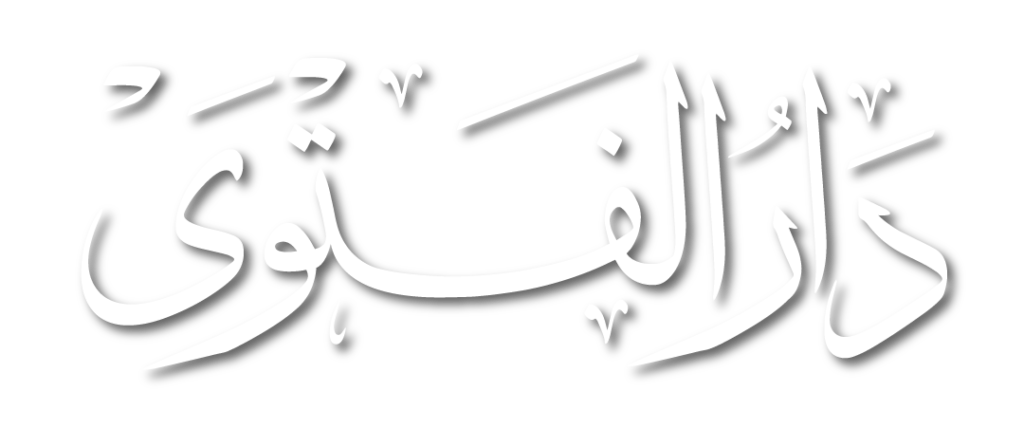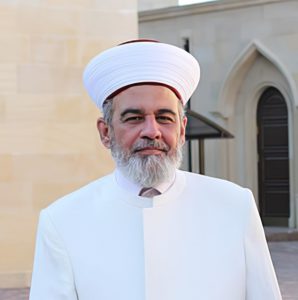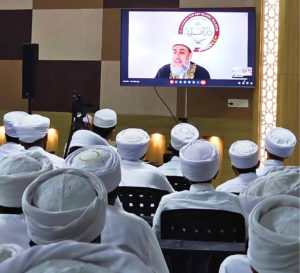In the absence of water or when unable to use water, one may instead of performing wudu or ghusl perform tayammum. This is stated in the Qur’an:
فَلَمْ تَجِدُواْ مَاء فَتَيَمَّمُواْ صَعِيدًا طَيِّبًا فَامْسَحُواْ بِوُجُوهِكُمْ وَأَيْدِيكُم مِّنْهُ مَا يُرِيدُ اللهُ لِيَجْعَلَ عَلَيْكُم مِّنْ حَرَجٍ وَلَكِن يُرِيدُ لِيُطَهَّرَكُمْ وَلِيُتِمَّ نِعْمَتَهُ عَلَيْكُمْ لَعَلَّكُمْ تَشْكُرُونَ
This verse means: “If you do not find water, then perform tayammum with the pure soil. Pass it onto your faces and arms”. (al-Ma’idah, 6).
The Prophet said:
جُعِلَتْ لنا الأرضُ كلٌُها مَسْجِداً وجُعِلَتْ تُربَتُها لنا طَهُوراً – رواه مسلم
which means: “The earth is made a place for our prayers, and its soil is made for our purification” (Muslim).
One must make sure that the time of the prayer has set in before performing the tayammum. The tayammum is valid for one obligatory prayer only and for as many optional prayers as one wishes. However, one repeats the tayammum before each obligatory prayer.
How to perform Tayammum
Make sure that you have pure, dusty soil unused before in tayammum .
1. It is recommended to say Bissmillah. It is an obligation to strike the soil with your palms. Make the intention: “I intend to perform tayammum to make performing the prayer permissible” while transferring the soil until it touches your face .
2. Pass the soil on all of your face .
3. Strike the soil again and pass it on both hands and forearms, including the elbows. It is recommended to pass it on the right arm first then the left, It is an obligation to make sure that the soil on the left hand reaches all the parts of the right arm and conversely.





